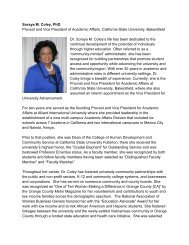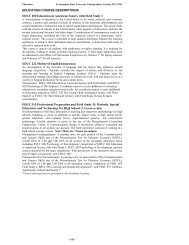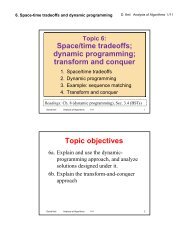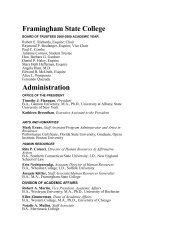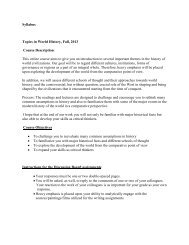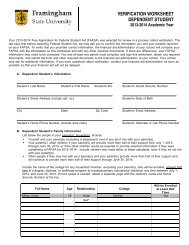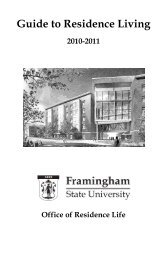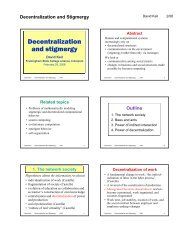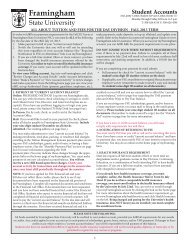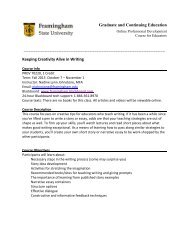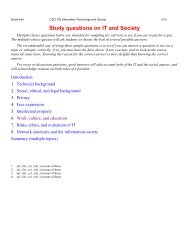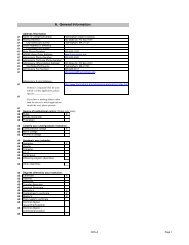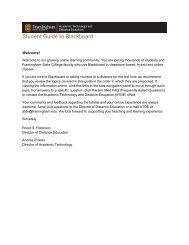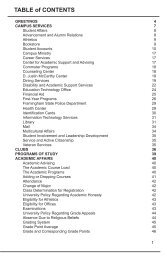Food and Nutrition Student Handbook - Framingham State University
Food and Nutrition Student Handbook - Framingham State University
Food and Nutrition Student Handbook - Framingham State University
You also want an ePaper? Increase the reach of your titles
YUMPU automatically turns print PDFs into web optimized ePapers that Google loves.
May-12<br />
Explanation of Course Sequence<br />
pre = prerequisite course(s) required, review catalog<br />
L = laboratory included as part of course<br />
General Education Goals - <strong>Student</strong>s who transfer in courses accepted as meeting General Education goals<br />
may elect to take other courses. <strong>Student</strong>s must take at least 12 General Education courses to fulfill the<br />
General Education requirement.<br />
General Education Goals 1 <strong>and</strong> 2 must be taken within the first three semesters; other General Education<br />
courses are interchangeable <strong>and</strong> in some instances, two goals can be met by one course, e.g., overlay. If<br />
course selection meets two goals, then a free General Education elective is possible.<br />
<strong>Student</strong>s should use this course sequence as a guideline for discussion with their advisor.<br />
NOTES:<br />
1. Please be aware of the following course sequencing:<br />
Chemistry <strong>and</strong> Clinical <strong>Nutrition</strong> Course Sequence<br />
Principles of Chemistry Principles of Chemistry <strong>and</strong> Quantitative Analysis<br />
Organic Chemistry I Biochemistry Human <strong>Nutrition</strong> Science Medical <strong>Nutrition</strong><br />
Therapy<br />
Chemistry <strong>and</strong> <strong>Food</strong>service Course Sequence<br />
Principles of Chemistry Principles of Chemistry <strong>and</strong> Quantitative Analysis<br />
Organic Chemistry I Experimental Study of <strong>Food</strong> <strong>Food</strong>service Systems<br />
<strong>Nutrition</strong> Course Sequence<br />
<strong>Nutrition</strong> Science & Applications <strong>Food</strong>, Culture <strong>and</strong> Society Experimental Study<br />
of <strong>Food</strong> <strong>Food</strong>service Systems<br />
<strong>Food</strong>, Culture <strong>and</strong> Society Introduction to <strong>Nutrition</strong> Practice Community <strong>Nutrition</strong><br />
2. See this h<strong>and</strong>book or <strong>University</strong> catalog for other suggested electives.<br />
3. <strong>Student</strong>s may elect to minor in another Department. Recommended minors are <strong>Food</strong><br />
Science, Psychology, Communications, Modern Languages, Business, or Sociology. See<br />
university catalog for specific course requirements.<br />
4. Experience has shown that students who need to work more than 10 hours a week<br />
should consider taking fewer than 4 courses/semester.<br />
20



